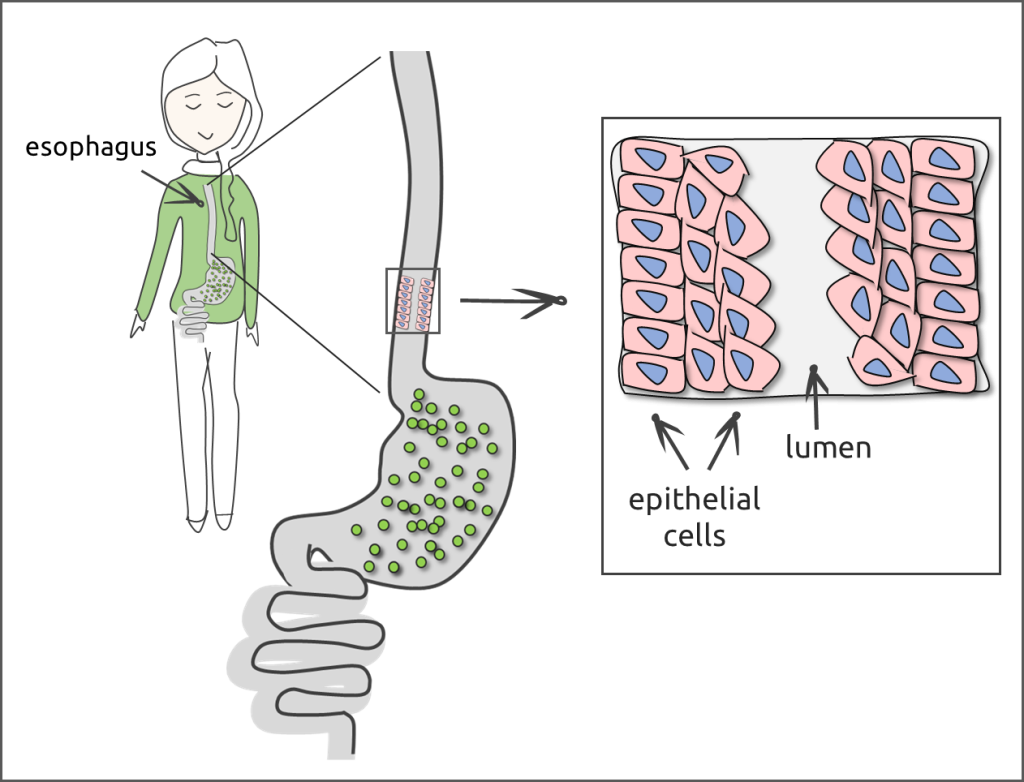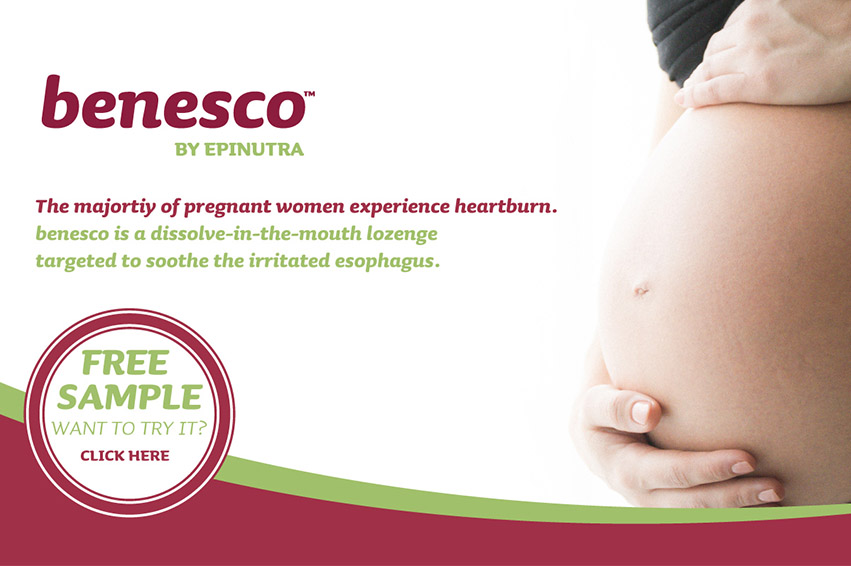When the team behind Epinutra first started its research, it was looking for solutions to strengthen the connections between cells in the body. Ten years later, it has developed a natural food supplement that could provide a new way to tackle heartburn – even in vulnerable groups like pregnant women.
Epinutra’s CEO and founder Richard Hampson admits that the company took an unconventional approach, first looking for compounds that strengthen the epithelia – the outer layer of cells that protects many internal organs – before considering possible uses for them.
“From a business perspective, it was the wrong way around,” he said, explaining that he and his team spent a decade inventing the test and screening more than 2,000 molecules to see if they hit their molecular target of interest.
A natural solution to heartburn
“We found roughly five candidates that fit the bill, and two of them were food ingredients. So that meant instead of looking at drug development, we could look at natural food supplements,” he said. “There is often a preference for a natural food supplement rather than a drug, especially for pregnant women for example, who often take a ‘grin and bear it’ approach.”

Epinutra was set up in the summer of 2019 as an affiliate company of Portugal-based Thelial Technologies, S.A., supported in part by grants from the European Research Council and the EU Horizon 2020 SME Instrument Programme. It is dedicated to the development of benescoTM (check explainer video about benescoTM), a supplement taken as a lozenge to support oesophagus health for people who suffer from heartburn. The product is based on two active ingredients: an antioxidant found in apples called quercetin; and vitamin B2, or riboflavin; as well as the sugar-free sweetener isomalt.
The active ingredients are present at relatively low doses – the quercetin is equivalent to that found in about three apples, just over 30 mg – while the vitamin B2 is about 15% of the recommended daily dose. The company suggests that someone might question why it would be necessary to take a supplement when these nutrients are so readily available in a healthy diet, but the time it takes to consume them is important. Eating apples means the quercetin passes very quickly through the oesophagus tube that links the mouth and stomach, whereas sucking a lozenge similar to breath-freshening mints takes several minutes, which is crucial for the compound to have an effect, in addition to stimulating saliva production.
So, why the oesophagus?
Epithelial health could refer to any number of tissues in the body, but Hampson and the Epinutra team chose to focus on the oesophagus because it is by far the simplest part of the digestive tract to reach.

“The oesophagus is the simplest for us to address,” he said. “If you want to target anything in the gut you have to pass through the stomach. The oesophagus is much easier.”
It is an enormous market: the global antacids market alone is worth about $10 billion a year, according to the World Health Organization.
Heartburn and indigestion are incredibly common, but few remedies are available, and often come with side effects. There are over-the-counter antacids, which work by either capping stomach acid, preventing reflux into the oesophagus, or by neutralising acids with an alkali compound.
The other option is proton pump inhibitors, which suppress stomach acid production, but over time, they can cause headaches, gastrointestinal complaints, and even interfere with the absorption of some nutrients and prescription drugs.
Licensing opportunity
“There are options, but they all target stomach acid and reducing stomach acid, which we don’t,” said Hampson. “…It is a crowded market, but with solutions that have been around for a long time. Our principal competitors are protein pump inhibitors. They are effective, but have side effects in the long term. And beyond that, they have gone off patent.”
This is part of the reasoning behind the company’s fundamental strategy to license its technology to someone else, rather than developing and marketing its own product; manufacturers are likely to have an appetite for new options (and potential revenue streams) for tackling heartburn in this highly competitive market.
“We just received our first prototypes of benescoTM and we are launching for ourselves with a distribution partner in the Netherlands,” said Hampson. “In the longer term we are certainly looking to license it to a larger player.”
At this stage, however, he says the project is still in an early phase and needs more development before the product will be ready for licensing.
Working with StartLife
The company’s founders already had connections with clinical partners based in Amsterdam, and this sparked their interest in the Netherlands, but Epinutra was established there after contacting StartLife at the beginning of 2019. It was accepted onto the StartLife Accelerate program, and launched just a few months later.
“We don’t come from a strong food background,” said Hampson. “StartLife fitted exactly with what we needed, which was that they saw the innovation that we had and they had experts and connections in the food industry. StartLife has really been a gateway to the food industry in the Netherlands. They can be credited with why we set up a Dutch company.”
He added that having the backing of the StartLife brand and Wageningen University has been a helpful seal of approval with its partners, and StartLife clearly was important financially as the company’s initial investors.
Less than a year after it was founded, Epinutra has just closed a funding round led by Rabobank, and has built its Netherlands-based presence from a small, scientific-focused team to one that includes a variety of experts, including marketing professionals.
After launching the product this year, the company plans to seek equity investors to develop other targeted nutraceuticals. If you are interested in this opportunity please contact Richard Hampson directly: rhampson@epinutra.com.
